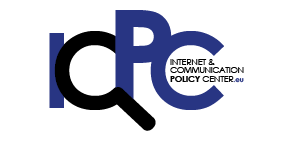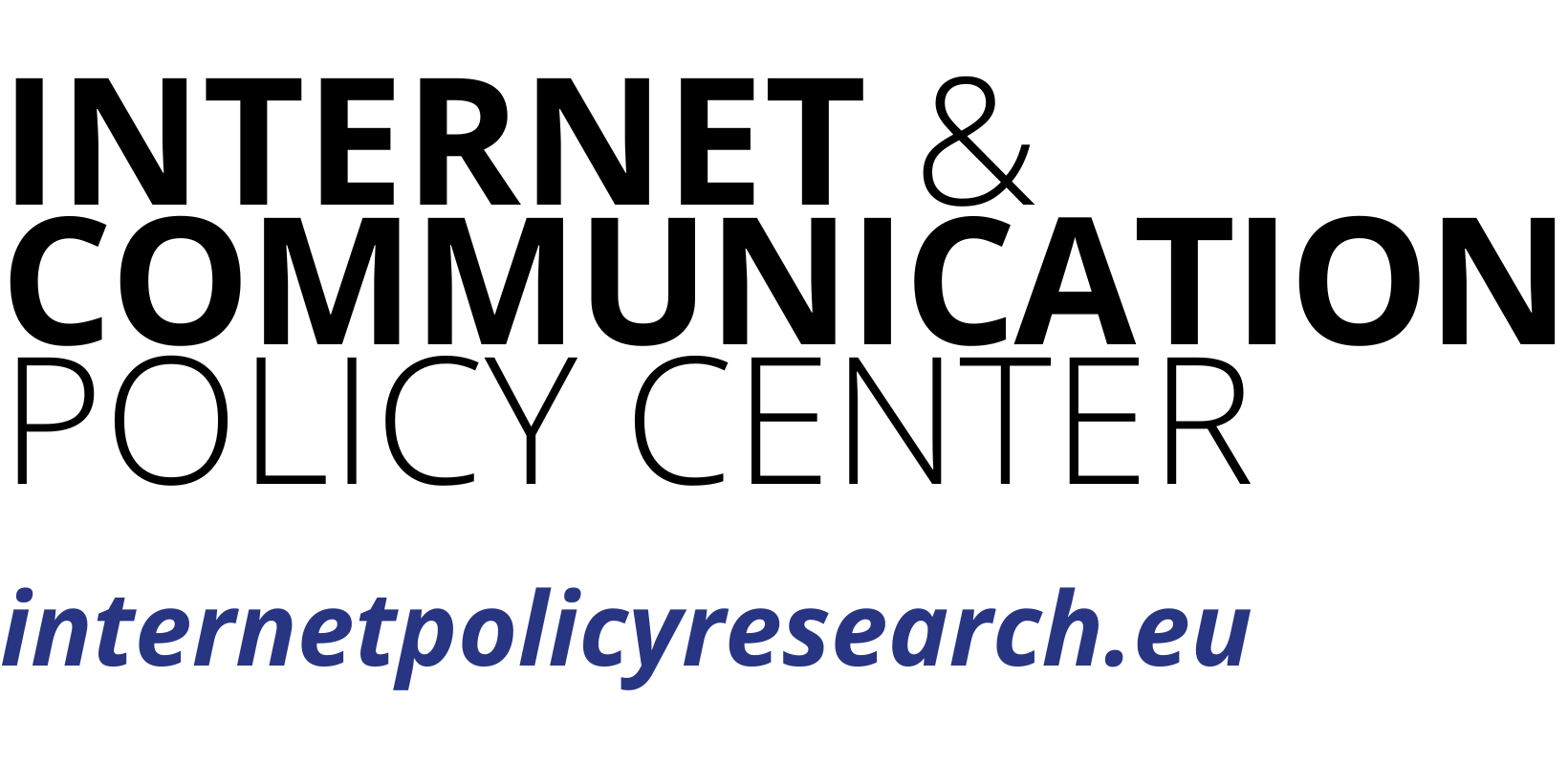CfP GIG-ARTS 2019: “Europe as a Global Player in Internet Governance” 16-17 May 2019, Salerno

3rd GIG-ARTS Conference
16-17 May 2019
Europe as a Global Player
in Internet Governance
Internet & Communication Policy Centre
Department of Political, Social and Communication Sciences
University of Salerno
In partnership with:
Although to varying degrees of autonomy, awareness, and effectiveness over time and issues, European institutions have been engaged in internet governance and policy-making since at least two decades. Both the European Union and Europe as a region have generally played a crucial role in shaping the governance of the internet, at the global, regional and national levels.
From a geopolitical perspective, the EU has been one of the early actors advocating for the internationalisation of the DNS system and, more generally, for the enhancement of the multi-stakeholder governance model. From a normative point of view, EU institutions as well as Member States have deeply affected highly sensitive internet-related issues, such as privacy and data protection, digital market competition, consumers’ rights, copyright, e-commerce, content regulation, the right to be forgotten, etc. On the institutional level, some of the most interesting cases of recent constituent policies have emerged from the European Union, leading to the establishment of new agencies such as the European Network and Information Security Agency (ENISA) and the European Data Protection Board (EDPB). Beyond the EU, some European intergovernmental organisations, such as the Council of Europe (CoE), have developed structured initiatives to uphold human rights, democracy and the rule of law on internet governance issues. Further, a number of European initiatives, such as the European Dialogue on internet Governance (EuroDIG) and the Global internet Policy Observatory (GIPO), have facilitated the transfer of ideas, knowledge, policies and institutional arrangements towards other countries and geographic areas. Finally, European NGOs as well as some European internet companies are currently advancing alternative visions and values about the internet and its governance, enriching the set of internet governance approaches as well as available design options.
The third edition of the European Multidisciplinary Conference on Global Internet Governance Actors, Regulations, Transactions and Strategies (GIG-ARTS 2019), will be held exactly twenty years after the entry into force of the Amsterdam Treaty and ten years after the Lisbon Treaty, which are milestones in the history of the European integration process, preparing the EU for enlargement and further deepening of competences, and reinforcing the centrality of democratic principles and the protection of fundamental rights as the Union’s foundation.
After having addressed “Global Internet Governance as a Diplomacy Issue” at its first edition held in Paris in 2017, and “Inequalities in Internet Governance” at the second edition held in Cardiff in 2018, the 2019 GIG-ARTS conference will explore the role of Europe in the global governance of the internet. In particular, the conference will focus on challenges and opportunities, as well as strengths and weaknesses, of European approaches to internet governance and policy-making.
In addition to general internet Governance issues and topics, submissions are particularly welcome on the following themes:
-
European institutions and Member States in internet governance;
-
The European approach to the multistakeholder governance model;
-
The role of the European External Action Service in the Global Internet Governance ecosystem;
-
Internet governance in the European Neighbourhood Policy;
-
The EU cybersecurity policy;
-
Extraterritorial effects of European internet policies;
-
Internet-related geopolitical challenges for Europe;
-
The EU and internet-related policy transfer;
-
EU internet policies in a comparative perspective;
-
Human rights, democracy and the rule of law in European internet policy and instruments;
-
Privacy and data protection after the General Data Protection Regulation (GDPR);
-
Global online platforms and EU general policies (labour, taxation, transport,..);
-
EU strategies and policies on new technologies (AI, robots, blockchains,..);
-
European good governance values and internet governance;
-
The Digital Single Market and international trade;
-
The EU and the management of critical internet resources;
-
Populist movements and the European internet policy-making;
-
EU values, European internet companies, and internet design.
Submission Information and Publication Opportunities
Authors are invited to submit their extended abstracts (no longer than 500 words), describing their research question(s), theoretical framework, approach and methodology, expected findings or empirical outcome. Submitted abstracts will be evaluated through a peer-review process.
Abstracts and authors’ information should be submitted through the Easychair conference management system at:
https://easychair.org/conferences/?conf=gigarts2019
Authors of selected submissions will have the opportunity to submit their full manuscript for publication.
Key dates
Deadline for abstract submissions: 9 November 2018
Notification to authors: 17 December 2018
Authors registration (at least one author must register for a selected presentation to appear on the programme): From 20 December 2018 to 21 January 2019
Programme publication: 8 February 2019
Online registration: From 8 February to 3 May 2019
Conference dates: 16 & 17 May 2019
GIG-ARTS 2019 Committees
General Chairs
Francesco Amoretti and Mauro Santaniello
Internet & Communication Policy Centre, Department of Political, Social and Communication Sciences, University of Salerno, Italy
Scientific Program Committee
Eric Brousseau (Université Paris Dauphine, France)
Andrea Calderaro (Cardiff University, United Kingdom)
George Christou (University of Warwick, United Kingdom)
William J. Drake (University of Zurich, Switzerland)
Nanette S. Levinson (American University Washington DC, USA)
Robin Mansell (London School of Economics, United Kingdom)
Meryem Marzouki (CNRS and Sorbonne Université, France)
Teresa Numerico (Università di Roma 3, Italy)
Claudia Padovani (Università degli Studi di Padova, Italy)
Elena Pavan (Università di Trento, Italy)
Lorenzo Pupillo (Centre for European Policy Studies, Belgium)
Michèle Rioux (Université du Québec à Montréal, Canada)
Katharine Sarikakis (University of Vienna, Austria)
Yves Schemeil (Sciences Po Grenoble, France)
Jan Aart Scholte (University of Gothenburg, Sweden)
Jamal Shahin (VUB, Belgium & University of Amsterdam, The Netherlands)
Michele Sorice (LUISS University, Italy)
Joris van Hoboken (VUB, Belgium & University of Amsterdam, The Netherlands)
Organizing Committee at University of Salerno
Maria Carmela Catone, Virgilio D’Antonio, Paolo Diana, Domenico Fracchiolla, Gennaro Iorio, Stefania Leone, Michele Nino, Nicola Palladino, Massimo Pendenza, Diana Salzano
Venue
The conference will be held at the University of Salerno, on the campus of Fisciano.
Conference Registration and Fees
Registration fees are 100€ for regular participants and 50€ for students showing proof of status. The conference fees include a participant kit as well as coffee breaks and meals.
GIG-ARTS 2019 Communication Details
- Website: events.gig-arts.eu | http://www.internetpolicyresearch.eu
- Email for information: events@gig-arts.eu
- Submissions: https://easychair.org/conferences/?conf=gigarts2019
-
Twitter: @GigArtsEU – Hashtag: #GIGARTS19
-
Mailing list for updates: http://tinyurl.com/yc7rvxm4






Comments are closed, but trackbacks and pingbacks are open.